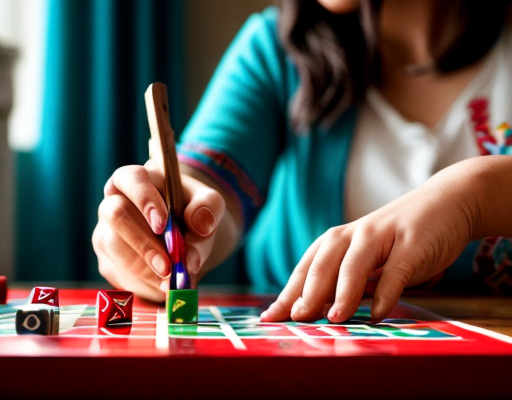
8 Family Games That Use Math in Everyday Situations
8 Family Games That Use Math in Everyday Situations
Mathematics is an essential skill that everyone needs in their everyday lives. From counting money to measuring ingredients, math is everywhere. But teaching kids math can sometimes be a challenge. That’s where family games come in. By incorporating math into fun and interactive games, you can make learning math enjoyable for the whole family. In this article, we’ll explore eight family games that use math in everyday situations. Get ready to have fun while improving your math skills!
1. Monopoly
Monopoly is a classic board game that teaches kids about money management, addition, subtraction, and even basic investing. Players have to budget their money, calculate change, and make strategic decisions to buy properties and collect rent. By playing Monopoly, kids can practice their math skills while learning valuable lessons about finance and real estate.
2. Set
Set is a fast-paced card game that helps develop visual perception and pattern recognition. The game consists of a deck of cards with different shapes, colors, and numbers. Players have to identify sets of three cards where each feature is either all the same or all different. By analyzing the cards and mentally manipulating the features, kids can strengthen their logical thinking and math skills.
3. Yahtzee
Yahtzee is a dice game that requires players to roll five dice and score points based on different combinations. Players have to make strategic decisions to maximize their scores, which involves calculating probabilities and choosing the best scoring option. Yahtzee is not only a fun game for the family but also a great way to practice mental math and improve problem-solving skills.
4. Rat-a-Tat Cat
Rat-a-Tat Cat is a card game that combines strategy and memory skills. The goal is to have the lowest score at the end of the game by swapping cards and trying to get the lowest possible values. Players have to remember the values of their cards and make smart decisions to improve their hand. Rat-a-Tat Cat helps kids with number sense, mental math, and strategic thinking.
5. Scavenger Hunt
A scavenger hunt is a fun outdoor activity that can incorporate math skills. Create a list of items for your kids to find, and assign different point values to each item based on its difficulty or rarity. Encourage your kids to count the points they accumulate during the hunt and keep track of their scores. Scavenger hunts not only promote math skills but also teamwork and problem-solving.
6. Sudoku
Sudoku is a number puzzle that challenges players to fill a 9×9 grid with digits so that each column, each row, and each of the nine 3×3 subgrids contains all the digits from 1 to 9. Solving Sudoku puzzles requires logical thinking, pattern recognition, and deductive reasoning. Kids can start with simpler versions of Sudoku and gradually increase the difficulty as they improve their math skills.
7. Boggle
Boggle is a word game that can also improve math skills. The game consists of a grid of lettered dice, and players have to create words by connecting adjacent letters. To make it math-related, you can encourage your kids to calculate the scores of their words based on the letters’ assigned values. Boggle helps with vocabulary, spelling, and math calculations.
8. Math Dice
Math Dice is a game that combines math skills with dice rolling. Players roll the dice and have to perform calculations using the numbers rolled to reach a target number. Kids can practice addition, subtraction, multiplication, and even division while playing Math Dice. The game can be adjusted to different skill levels, making it suitable for all ages.
By incorporating math into family games, you can make learning fun and engaging for your kids. These eight games not only improve math skills but also foster critical thinking, problem-solving, and strategic planning. So, next time you’re looking for a way to spend quality time with your family, consider playing one of these math-based games. You’ll be amazed at how much fun math can be!

